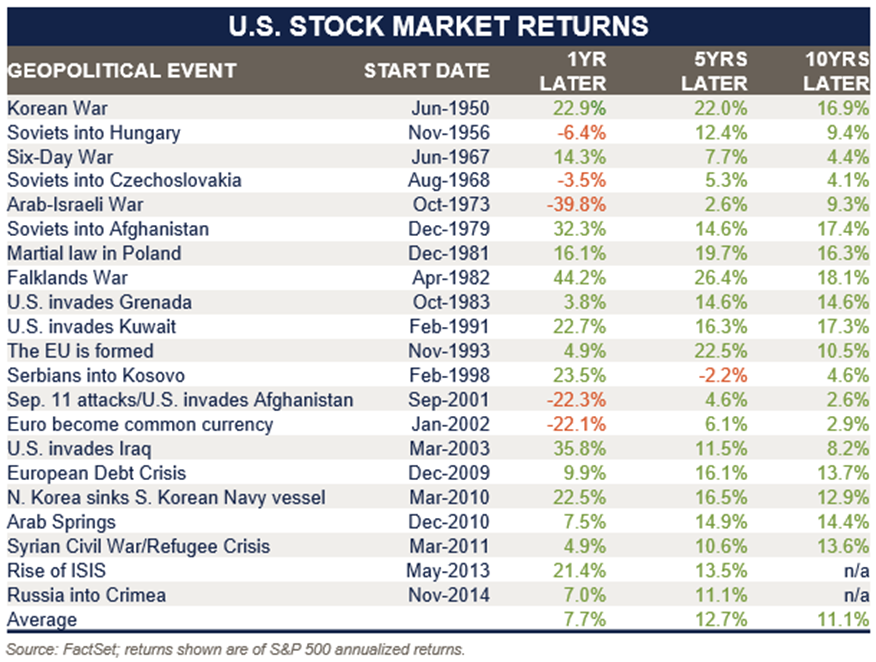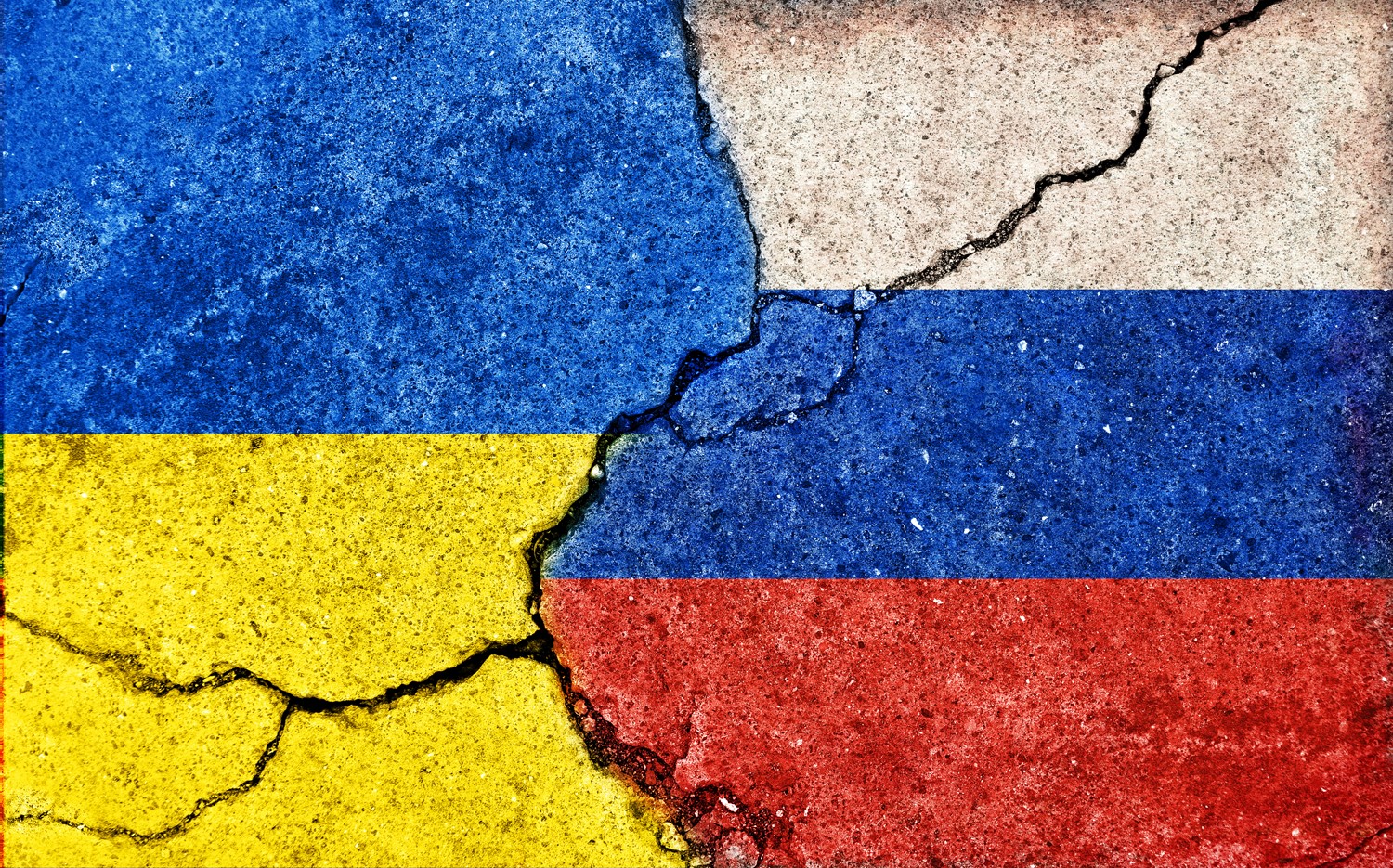Investment Implications of the Russia-Ukraine War
On February 24 Vladimir Putin, the President of Russia, ordered a full-scale invasion of Ukraine, the largest military attack in Europe since World War II. The foremost effect of the war so far has been a humanitarian crisis. Since the war began, accurate information has been difficult to obtain, but it’s estimated that over one and half million Ukrainians have fled, thousands have died, and hundreds of buildings have been destroyed. Our prayers are with those affected in Ukraine and Russia.
Within days of the invasion, the U.S., United Kingdom, European Union, and other countries announced sanctions against Russia. The breadth, severity, and coordination of the sanctions have been extraordinary, which has negatively impacted Russia’s economy. Since Russia invaded Ukraine, their currency has fallen approximately 40% against the U.S. dollar; their stock market has been closed for over a week; and many multinational companies have halted production, services, and sales in Russia. The main purpose of sanctions is to create significant pressure within Russia to convince Putin to back down. So far Putin hasn’t shown any signs of capitulating, and despite surprisingly stiff resistance from Ukraine, Russia is slowly gaining ground.
As long as the military conflict remains confined to Ukraine, we don’t expect a significant impact on global economic growth. Russia and Ukraine are not significant trading partners of any major economy, and together they account for less than 2% of global GDP. However, Russia is the world’s third-largest oil producer, so soaring energy prices will lift near-term inflation and potentially weigh on economic activity over time, especially in Europe.
Historically, geopolitical events—including wars—usually result in a near-term swoon in the market but have no predictable negative impact in the intermediate or longer term, as shown in the table below.

In times like these, it’s important to remember the longer-term nature of equity investments. While we’re watching for signs of potential further escalation, the near-term actions of the West and Russia are unknown. We also do not know how China, OPEC, central banks, and others will respond. For these reasons, we believe market volatility is best navigated by staying focused on the time-based investing perspective we recommend to clients. Monies needed in the short-term are largely sheltered in low-risk investments, while longer-term portfolios are able to hold more volatile investments which, when given sufficient time, are more likely to recover and deliver higher, long-term returns.
We will continue to monitor the situation, as we do all significant geopolitical events, and recommend changes as needed. We’re hopeful a resolution is found soon. One thing is certain: Russia, Ukraine, and the West don’t want a prolonged military conflict.
If you have additional questions, please reach out to your Blue Trust advisor or contact us at 800.987.2987 or email blog@bluetrust.com.
14605105-03-22
